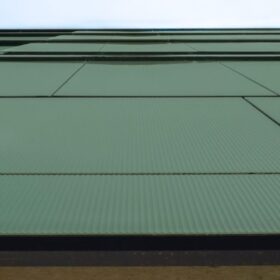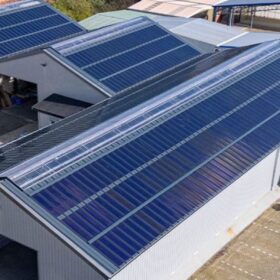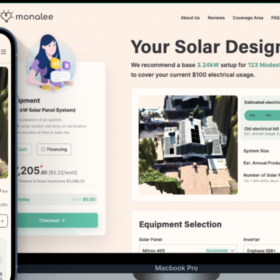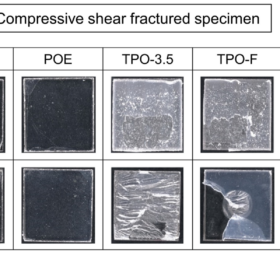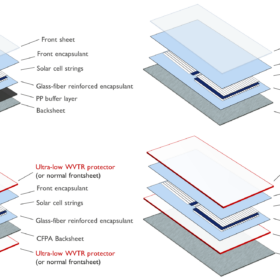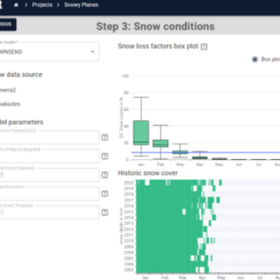Colored BIPV manufacturers and success factors
A Swiss research team published a review of the technologies used to manufacture of colored building integrated PV, discussing competitive characteristics of more than a dozen products, as well as success factors to drive market development.
Heliatek develops lightweight organic PV module for low load-bearing roofs, facades
German organic PV manufacturer Heliatek has announced a new series of lightweight modules. The Heliasol 436-2000-CFE-45-600V panels are IEC 61215 and IEC 61730 certified and have a 20-year lifetime warranty.
Winaico presents bifacial 435 W TOPCon solar modules with 22.30% efficiency
Taiwanese manufacturer Winaico said its newest bifacial, n-type, glass-glass TOPCon compact modules are available in a 435 W aluminum-framed version, and a 430 W full-black version. The module efficiency is up to 22.30%.
U.S. startup launches online platform for residential PV system purchase
Two-year old Monalee has developed an online platform for U.S. homeowners looking to buy solar PV and storage systems. Its software enables the process from quotes to financing, installation, and after-sales support.
New research identifies advantages of thermoplastic polyolefin encapsulants in dual-glass solar modules
Austrian researchers performed tests on thermoplastic polyolefin (TPO) encapsulant as an alternative to conventional ethylene vinyl acetate (EVA) copolymer and polyolefin elastomers (POE) to assess its use in glass-glass modules. They report that all of the TPO specimens outperformed EVA and POE, especially TPO-3.5 encasulants.
Lightweighting vehicle-integrated photovoltaic modules
A European research team has investigated interconnection and encapsulation strategies to improve the damp heat and mechanical resilience of vehicle integrated photovoltaic (VIPV) modules, finding carbon-fibre reinforced plastics to be promising.
Circular recycling approach aims for ‘perpetual utility’ of PV materials
After analyzing the future usage of material by the crystalline silicon PV industry, including glass, aluminum, silver, copper, ethylene-vinyl-acetate (EVA), and silicon, a German research team found that a circular recycling approach could address foreseeable supply problems. It could also reportedly become economically sustainable.
Researchers build 24.4%-efficient perovskite solar cells with room temperature process
Researchers from the U.S. and South Korea have developed a method to make high-quality perovskite films at room temperature. The film was tested in a conventional perovskite solar cell architecture and the result was a power conversion efficiency of exceeding 24%.
Indoor PV powered wireless touch-switch to control home, office equipment
U.K.-based indoor PV specialist Lightricity and Japanese capacitator manufacturer Nichicon have developed a PV-powered Bluetooth switch to remotely control home or office equipment, such as lighting, sliding doors, or appliances.
PVRadar offers solar project risk assessments factoring in historical climate data
PVRadar Labs has expanded its software platform to include PV project risk assessment functionality, reportedly enabling more realistic performance estimates based on historical climate data.
